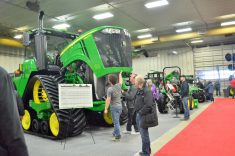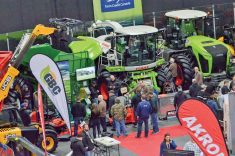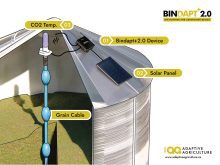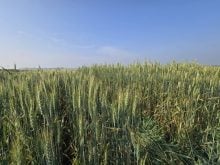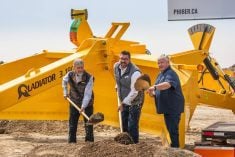Dealers use farm equipment data to keep needed parts in stock, speed repairs and give better advice, attendees heard during a combine clinic Nov. 22 in Winkler.
The clinic was one of the agenda items during the 2023 Manitoba Farm Women’s Conference.
Why it matters: Increasingly complex computer systems in the cab generate more field, yield and other data every day.
Read Also
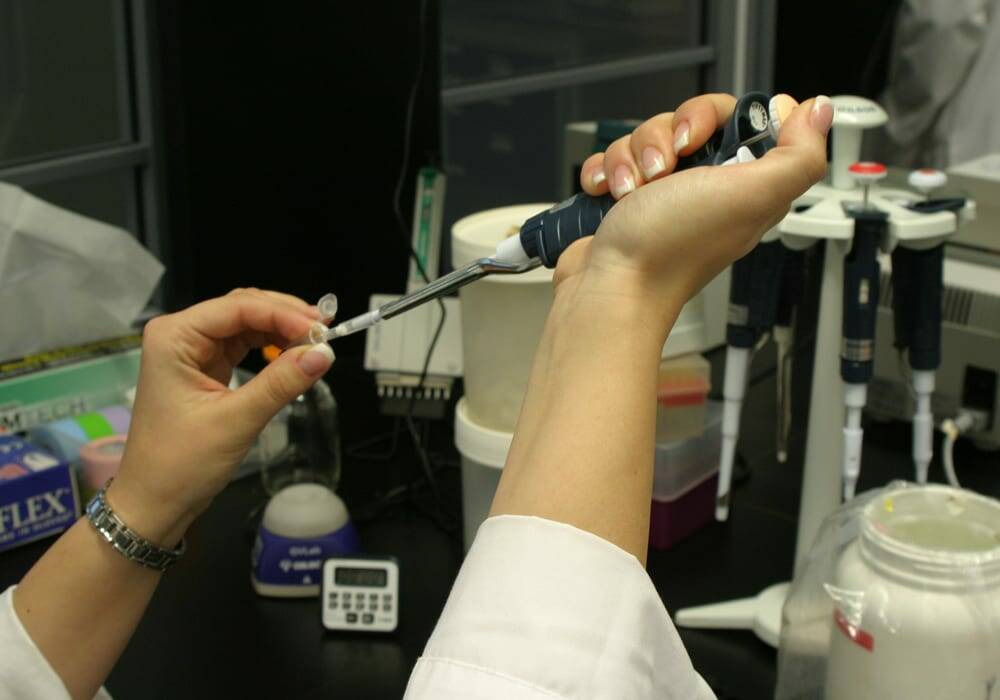
Ship’s turning for gene-edited crops
More and more countries have decided that gene-edited crops will be treated the same as conventional plant breeding.
There were queries about who gets to see machinery data and what it is used for outside the farm.
“My husband’s biggest thing is he’s giving away his information for free,” one audience member said.
It’s a common question, said Nathan Reimer, integrated solutions manager at Greenvalley Equipment, where the clinic was held. The answer depends on the farmer.
“It’s really locked down to what the operator allows,” he said.
When the farmer sets up an account to use John Deere’s digital tools, they can choose to share data anonymously. In that case, nothing that could identify the farm is shared. Other options allow the farmer to share information without anonymity, or not to share data at all, Reimer said. They also have the option of sharing data with a third party.
That policy appears similar to other data-collecting companies like New Holland, Ag Leader or Farmers Edge.
John Deere is hoping farmers will collect data, Reimer said, because that information can be used to learn about the machinery and predict things like breakdowns. For example, a certain model of tractor, with 2,000 hours, when run at peak engine load, will likely see a particular part break at a generally estimated time.
That can help dealers like Greenvalley Equipment stock the right parts, Reimer said.
“We can already anticipate some failures, get more parts in, and get there faster,” added Curwin Friesen, Greenvalley Equipment’s CEO.
Despite the advantage of data, Friesen cautioned, the dealership still makes educated guesses about which parts to stock. He estimated the business has the right part about 80 per cent of the time.
Dealers could also use farm data to help farmers find efficiencies or to make decisions on which equipment to replace, said Roberta Falk, the company’s director of operations.
For example, productivity and fuel consumption data could indicate whether it’s possible to replace two combines with one new one, she said.
Healthy skepticism
Farmers’ wariness isn’t without reason. Agriculture data is big business, said Kelly Bronson in a 2022 op-ed published in the Co-operator.
“While there are benefits to farmers who buy the data-driven insights, there are clear and potentially incommensurate benefits for the corporations,” wrote Bronson, who is a Canada Research Chair in Science and Society at the University of Ottawa.
“Both the data-driven insights as well as the datasets are sources of profit for private firms,” she said.
For instance, data about weather and pest pressure could be used to predict which products are needed where, and then used to maximize companies’ profit, Bronson wrote.
Because artificial intelligence (AI) is only as good as the data feeding it, she added, the companies that collect and control the most data may gain the most power in an industry already dominated by corporate giants.




